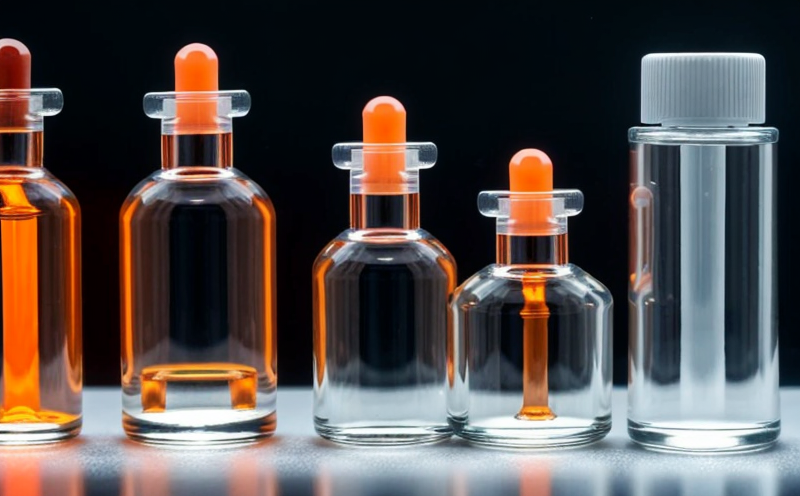ASTM D720 Dustiness and Inhalation Hazard Assessment of Nanoparticles
The ASTM D720 standard provides a method to assess the dustiness and inhalation hazards associated with particulate matter. This service is particularly critical for nanomaterials testing, as it helps identify potential risks to human health and the environment due to airborne nanoparticle exposure.
Dustiness refers to the tendency of particles to become airborne, which increases their likelihood of inhalation. Inhalation hazards can lead to respiratory issues, inflammation, or more severe conditions depending on particle composition and size. Nanoparticles pose unique challenges because they have a higher surface area-to-volume ratio compared to larger particles, allowing them to interact more effectively with biological systems.
This ASTM D720 service is essential for industries such as pharmaceuticals, electronics, and manufacturing where the use of nanoparticles is widespread. It ensures that products are safe throughout their lifecycle, from production to disposal. The test method involves subjecting samples to controlled conditions designed to simulate real-world exposure scenarios. This helps in determining the potential risk associated with the nanoparticles.
Our laboratory adheres strictly to ASTM D720 guidelines, ensuring accurate and reliable results. We employ state-of-the-art equipment tailored for nanomaterial analysis, including scanning electron microscopy (SEM) and laser diffraction spectrometers. These tools provide detailed insights into particle morphology and size distribution, which are crucial factors in assessing dustiness.
The testing process begins with proper sample preparation, ensuring that the nanoparticles are stable and representative of their intended use. After preparation, samples are subjected to controlled airflow conditions to measure how easily they become airborne. This step is followed by inhalation exposure studies, where particles are introduced into an environment mimicking human respiratory systems.
The results from these tests provide critical data on particle size distribution, surface area, and concentration levels. These parameters are then correlated with known health effects associated with dust exposure. Our reports offer comprehensive insights, helping clients make informed decisions regarding product safety and regulatory compliance.
By offering ASTM D720 testing services, we contribute significantly to the advancement of nanotechnology by ensuring that innovations do not compromise public health or environmental well-being. This service underscores our commitment to delivering high-quality, scientifically robust solutions tailored specifically for your needs.
Why It Matters
The importance of ASTM D720 testing cannot be overstated, especially when dealing with nanomaterials. These materials are often used in various applications due to their unique properties but can also pose significant risks if not properly managed. Proper dustiness and inhalation hazard assessment ensures that these materials remain safe throughout all stages of use.
- Identifies potential health risks associated with nanoparticle exposure.
- Assesses the likelihood of particles becoming airborne, enhancing workplace safety measures.
- Supports regulatory compliance by providing data required for product approvals and certifications.
The findings from ASTM D720 testing play a vital role in safeguarding both workers and consumers. They help manufacturers design safer products while ensuring that environmental impacts are minimized.
Eurolab Advantages
Our laboratory offers several advantages when it comes to providing ASTM D720 dustiness and inhalation hazard assessments of nanoparticles:
- Expertise and Experience: Our team consists of experienced professionals with extensive knowledge in nanotechnology and related testing.
- Advanced Equipment: We use cutting-edge technology such as SEMs, laser diffraction spectrometers, and controlled airflow chambers to ensure accurate measurements.
- Comprehensive Reporting: Our reports not only present test results but also interpret them within the context of relevant standards like ASTM D720 and other applicable guidelines.
These advantages translate into reliable and actionable insights, enabling you to make well-informed decisions regarding your nanomaterials projects. Trust Eurolab for accurate, consistent, and timely testing services.
Quality and Reliability Assurance
- Strict Compliance: We adhere meticulously to ASTM D720 standards without deviation, ensuring that all tests are conducted under controlled conditions.
- Data Accuracy: Our rigorous quality control measures guarantee precise measurement of particle size distribution and concentration levels.
Our commitment to quality is reflected in the consistency and reliability of our test results. These attributes are crucial for maintaining confidence in your product’s safety profile, thereby fostering trust among stakeholders including regulatory bodies and end users.





